What a beautiful Sunday it is where I am, the perfect autumn day, blue skies and sunshine, the last of the burnt leaves on the trees. I hope it’s a pretty day where you are waking up.
And on this perfect autumn day, I have a perfect little Sunday Shelfie for you featuring
.Dr Lily Dunn is an author, mentor and academic. Her debut nonfiction, Sins of My Father: A Daughter, A Cult, A Wild Unravelling, a memoir about the legacy of her father’s addictions (W&N) was The Spectator and The Guardian Best Nonfiction Book, 2022. Her forthcoming book: Into Being: The radical craft of memoir and its power to transform is due to be published by MUP in 2025. She is also author of a work of fiction, Shadowing the Sun (Portobello Books, 2007), and co-editor of A Wild and Precious Life (Unbound, 2021), an anthology of stories on recovery from mental illness and addiction. She teaches narrative nonfiction and memoir at Bath Spa University and co-runs London Lit Lab. She also has her own rather brilliant substack And A Dog which you can find here:
Plus she co-writes the
substack. Do subscribe to both.But the bit we want to get to is where we get a snoop around her bookshelves, right? And here they are:
How would you describe your collection of books? Any favourite genres?
Oh goodness, I have so many books, and it still is quite an eclectic mix, but over the past five years or so I have accumulated many memoirs. I can’t remember when memoir became a thing for me, but I guess I began reading them in earnest when I started writing my own, despite finding they were among my favourite books before this – Once in a House on Fire (Andrea Ashworth) and Prozac Nation (Elizabeth Wurtzel) –without having realized they were memoirs at the time.
How many books do you estimate you have and how are they organised, if at all?
Firstly, no, they are not organized, although I did try to organize myself quite recently when I got my hands on a set of bookshelves that I commissioned to be made in my old life and that my husband took as his own in our divorce. He has since offered me almost everything he took, and I was very happy to have these back. They are cherry wood and made by a very close carpenter friend of mine. Regaining these bookshelves was like being given a second life because I could suddenly stretch my wings and sort out my study, which had pile upon pile of books. My study still has pile upon pile of books, but I did manage to put all my memoirs on one bookshelf, and all my books about the craft of memoir on another, mainly to try to shorten the wasted time it takes to find a book when I really need it. How many books? Maybe 2,000.
In percentage terms, how many of the total books on your shelves have you read?
Um, maybe half?
Which three books are top of your TBR (To Be Read) pile at the moment?
1. I have Orbital, by Samantha Harvey, sitting beneath my screen as I type, so that must mean it’s quite high up in the TBR list.
2. The Lonely City, Olivia Laing. I have started this, meaning to start it a long time ago, and I want to go back to it.
3. Ootlin, by Jenny Fagan. I waited with bated breath for this book after its release was postponed, but now it’s in my hands I am not sure what to do with it. I feel it needs to be handled with care.
Which book on your bookshelf is the most well-thumbed/do you return to the most, and why?
I love this question. I do remember reading somewhere – I think, actually, it was in a brilliant memoir I read recently: How to Say Babylon, by Safia Sinclair – that the sign of a good book is the annotations in the margin, and I now don’t feel remotely guilty about scribbling all over books I love. There are many books I return to, at different times in my life, depending on what I am going through or what I am writing, but one I recently learned a lot from was Leslie Jamison’s Splinters. I love how precise and artful her sentences are, and how meaningful. What I love about memoir is that you get such a clear sense of the person who wrote it. Not that you know them, but you get a glimpse of the depth of them, of their emotional and aesthetic landscape. And I feel Jamison and I have a similar sensibility.
Which book on your bookshelf do you most often buy as a gift for others, and why?
Not sure this is an easy answer. I would say, Deborah Levy is a pretty good bet. The Cost of Living. There’s something about that book that makes me really happy, and also teaches me something profound about what it is to be a woman. I should say an empowered, independent-thinking, creative woman, today, in the world we live in.
If you have a collection of writing craft books, which is your favourite and why?
Beyond a doubt: The Situation and the Story, by Vivian Gornick. It’s slim and clever and brilliantly written. It’s not that it’s saying anything particularly original but it’s the way it’s said, and the writing and insights that I find so rewarding. I do think she’s a particularly interesting writer of personal narrative.
If you write within a particular genre, can you tell us your three favourite books within that genre (classic or contemporary) and why?
1. Educated, Tara Westover – this was the first memoir that I read that made me feel changed by the end of it. I felt transformed. I’m not sure why, but I think it was because I was so involved in the reading experience, and so invested in the character of Tara. Also her family life, although bizarre and wrong in so many ways, was written with so much compassion and an attempt to try to understand that I just found the whole story kind of miraculous. When Tara ends up at Cambridge University, partly because she has had such an unusual upbringing and has a diffrent perspective on the world, I realized why memoir is so important. It highlights the extraordinary and the different, which so often doesn’t fit into the mainstream and therefore is ignored, seen as strange, or undermined. It gives it a chance to speak, which then broadens the reader’s understanding of the world and what is possible. It felt like a story that had a kind of perfect innate form, which I find as a reader so satisfying.
2. The Missing List, by Clare Best. This is a very different kind of book in that it’s published by a small press, and is quiet in lots of ways. It has a small but significant and devoted readership. But I find it immensely artful and affecting. In fact, after I read it for the first time I did feel it was the best memoir I had ever read. It is about the most taboo of taboo subjects, which is incest abuse, but it barely mentions it. Instead it shows the insidious effects of it, through silence, illness, pain and broken relationships. It also demonstrates the flexibility of the form, in how it defies the conventional narrative and is made up of artefacts in Best’s attempt to try to understand a father who had been a mystery to her: transcripts; cine film footage; diary extracts; photographs.
3. A Flat Place, by Noreen Masud. I love the concept behind this book – that it is nature but also kind of not nature; that it is memoir but also kind of not. That place is important but we only really experience place within the context of the people in that place. That the diagnosis, or mental instability at the centre of the book reflects the physical appearance of the subject of the book, not through any contrivance, but because of the emotional effect place has on the author. That there is no central trauma, and if there was one it wouldn’t matter anyway because it is not the focus of the book.
Which book on your bookshelf is your guilty pleasure?
Oh god. This sounds so cliched by Nancy Friday, Secret Garden. It was a long time ago, but it was a revelation to me.
Which book on your bookshelf do you feel most guilty for not having read yet, and why?
So many books. I get sent a lot of proofs, and I don’t always get round to reading them. One I really want to read and keep not reading is Soundings by Doreen Cunningham. I just know I am going to like it, but my focus hasn’t been so much on ‘nature memoirs’ recently, and somehow this one keeps slipping through the gap.
Which book would we be most surprised to find on your bookshelf?
On a quick glance, Porno, by Irvine Welsh. But I haven’t read it.
Which book on your shelf would you take to a desert island, and why?
The Art of the Personal Essay, by Phillip Lopate – because there are sooo many good essays in this book and I will never tire of it.
Which book is on your wishlist currently to join all the others on your bookshelf?
I have no idea, actually, as I am so indulgent with books and tend to buy the ones I like when they are published (I also really like to support new writers).
• Thank you so much
for taking part and sharing your bookshelves with us.If you would like to subscribe to White Ink as a free or paid subscriber, you will find more guest essays as well as many of my own personal and writing craft essays, and of course my archive of Sunday Shelfies.
Find out more here:



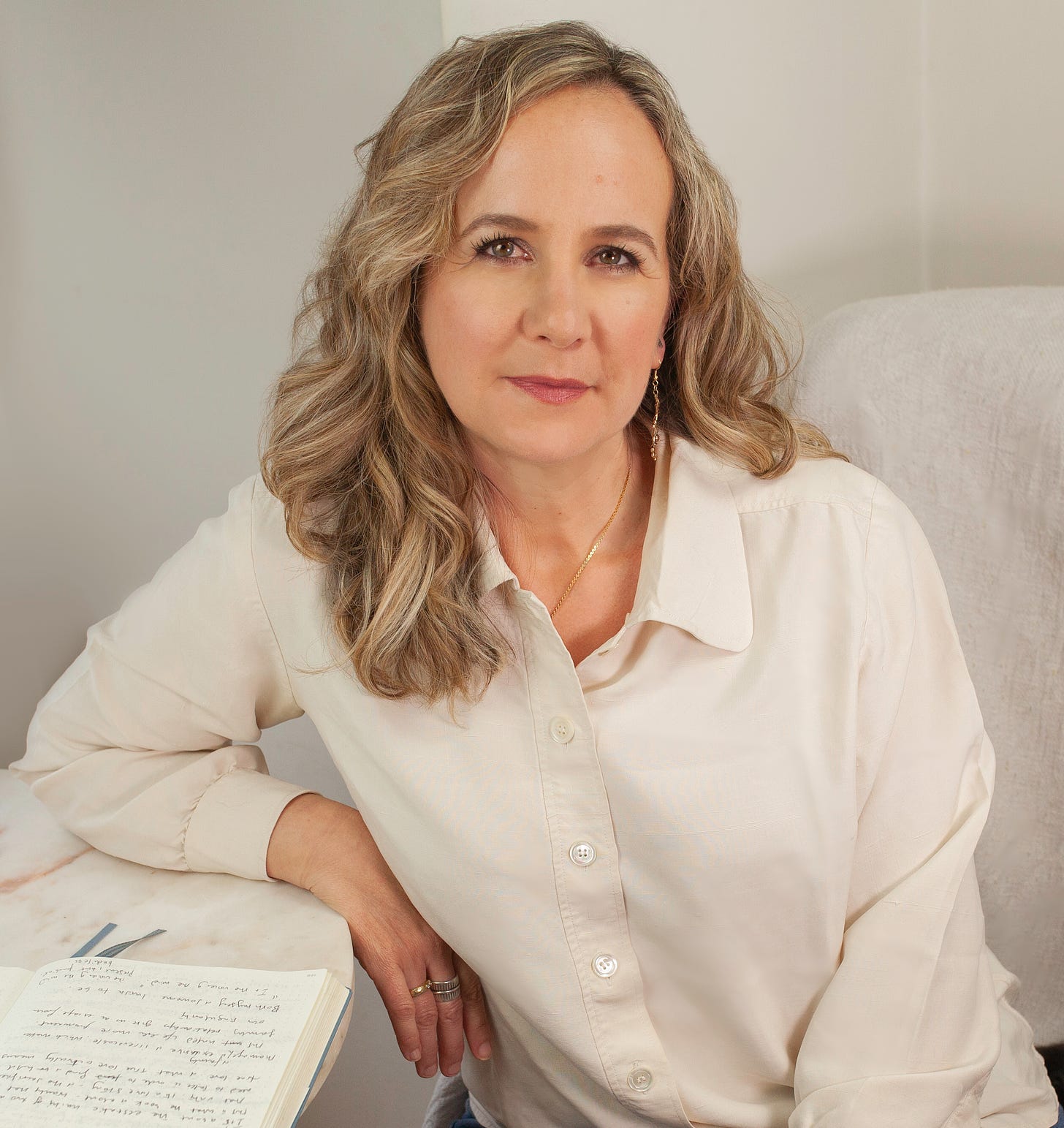
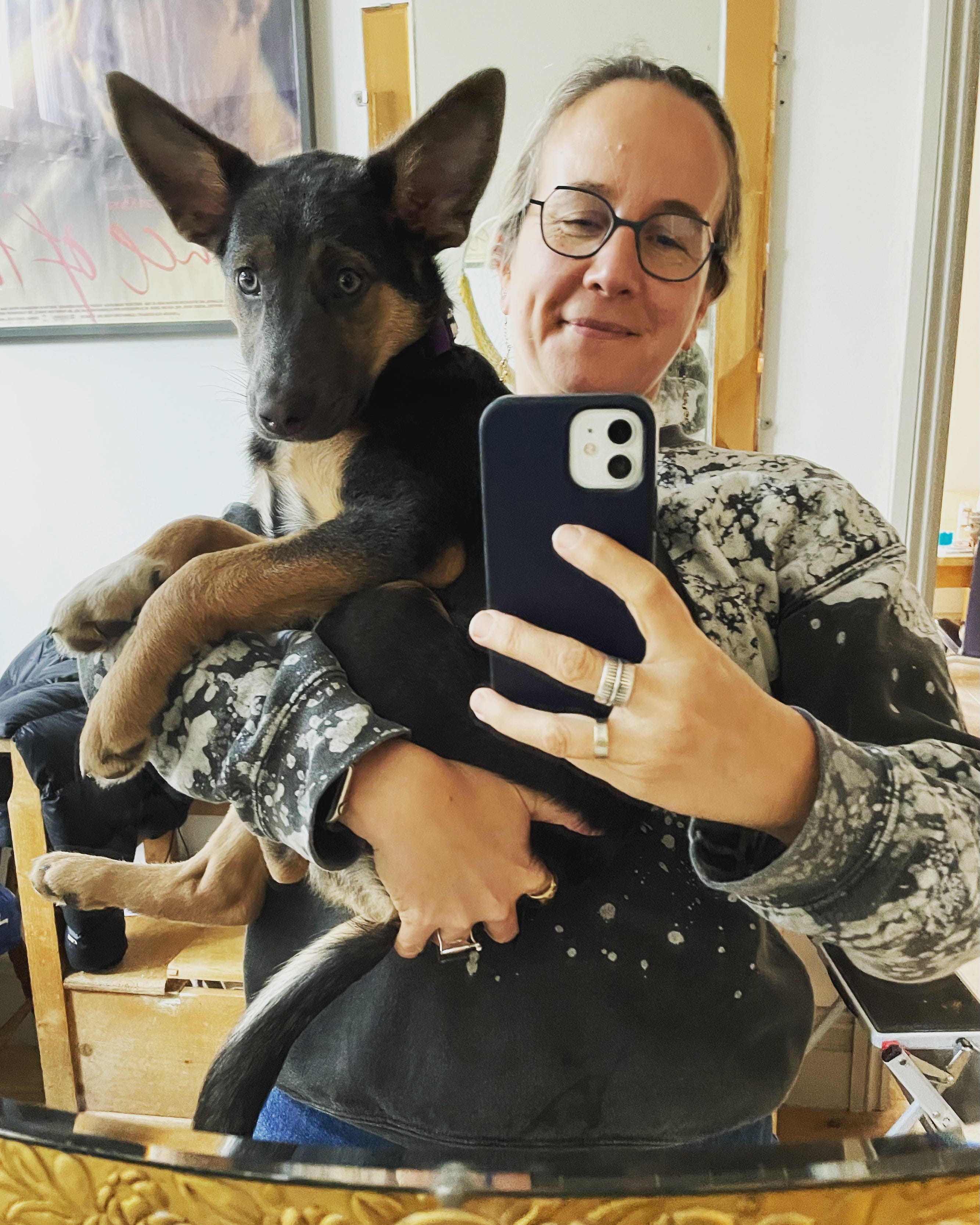
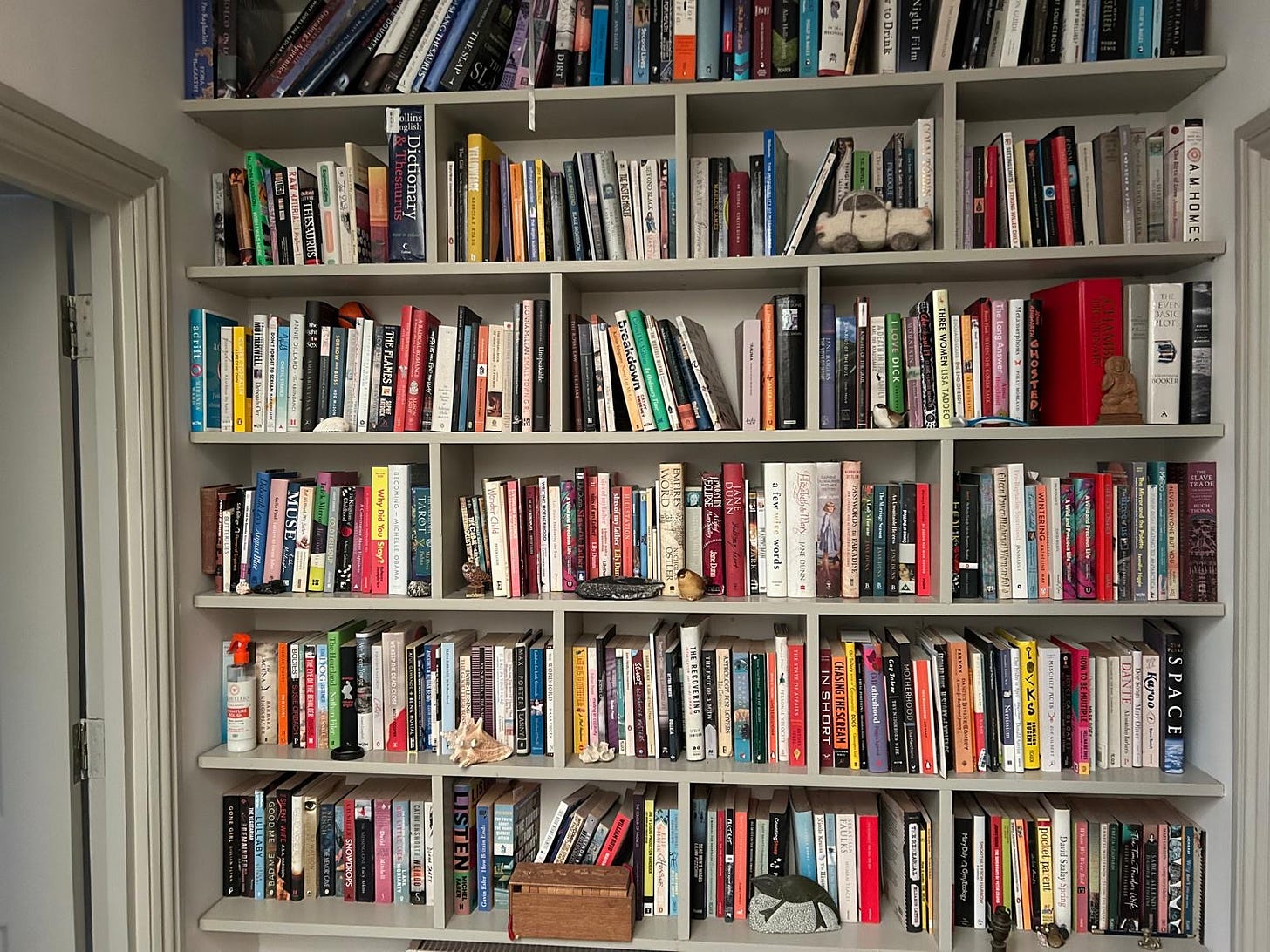
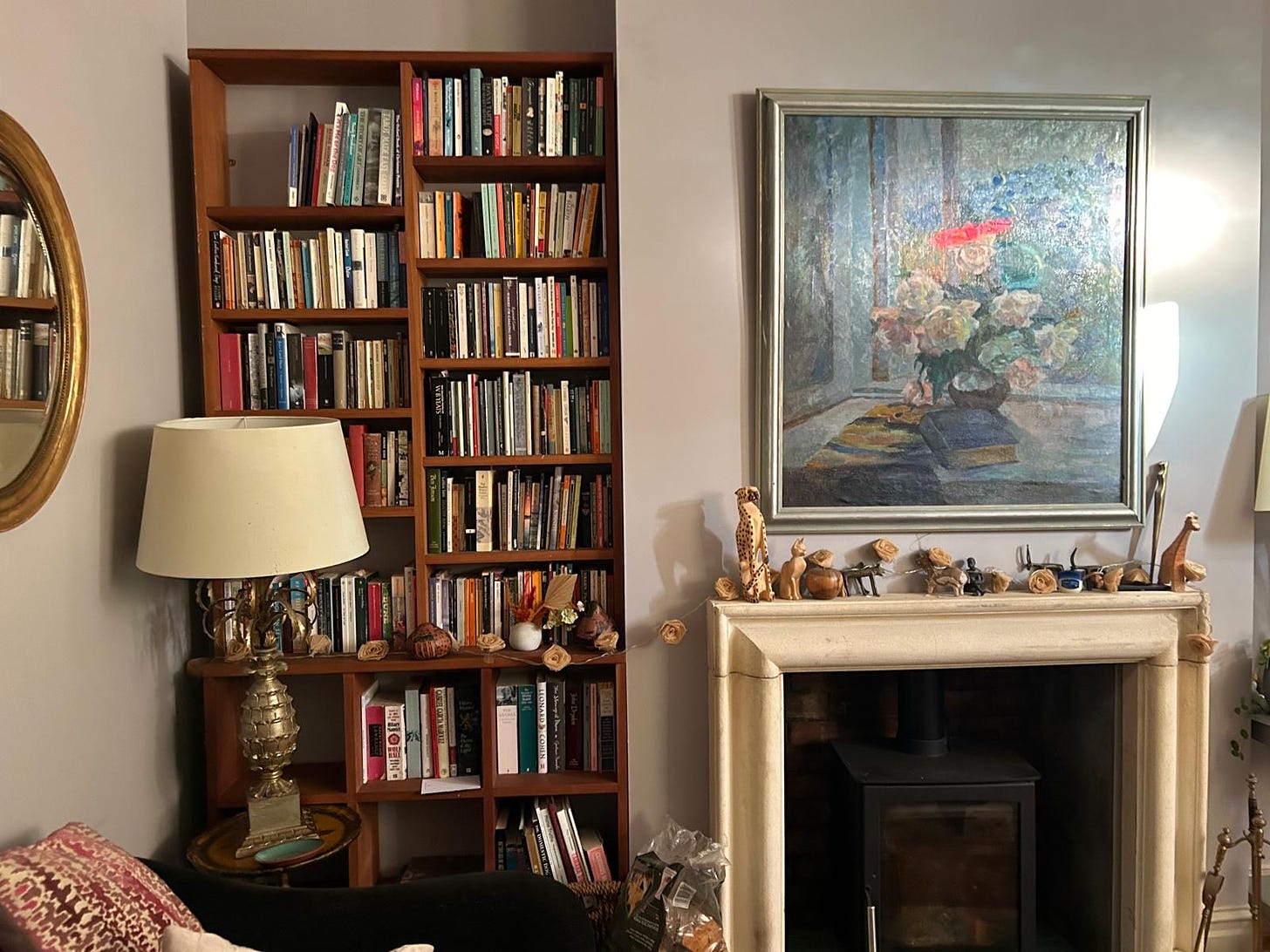
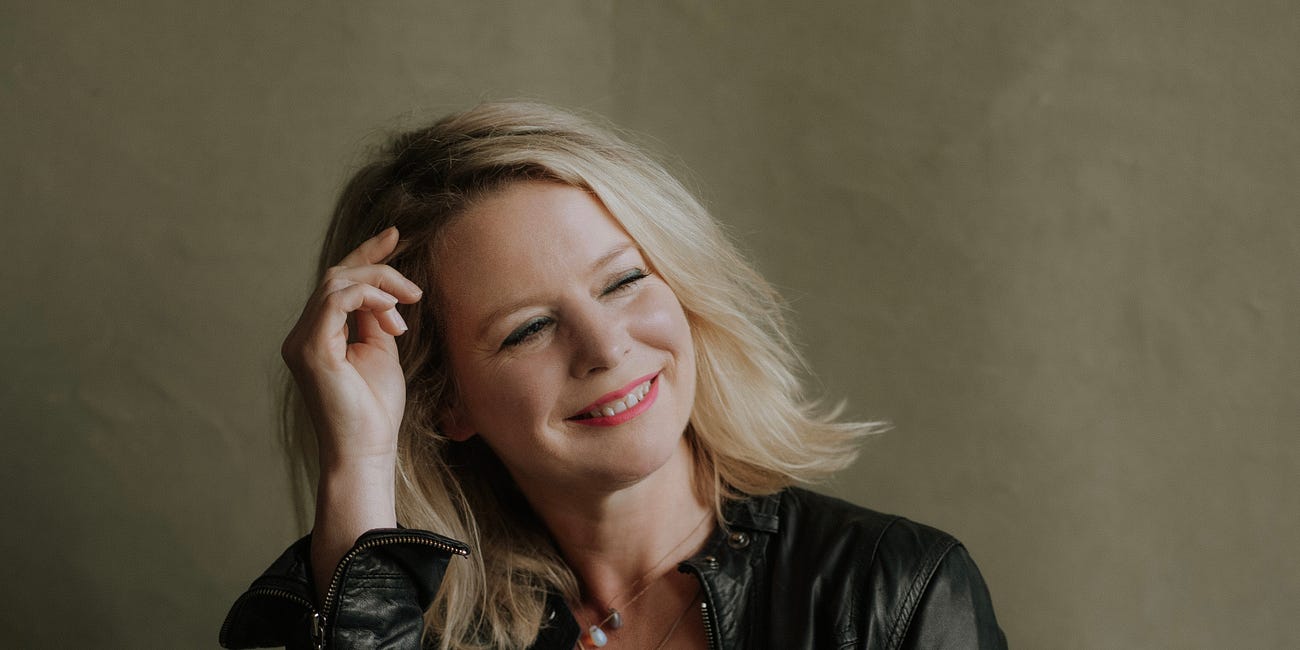
Ooo some really good recommendations here! I’ve been in a fiction tunnel recently but this makes me want to dive back into memoir.
Oh how I love reading about other people's reading. And always excited to hear about a book someone loves...I am definitely bookmarking The Art of the Personal Essay for future reading.